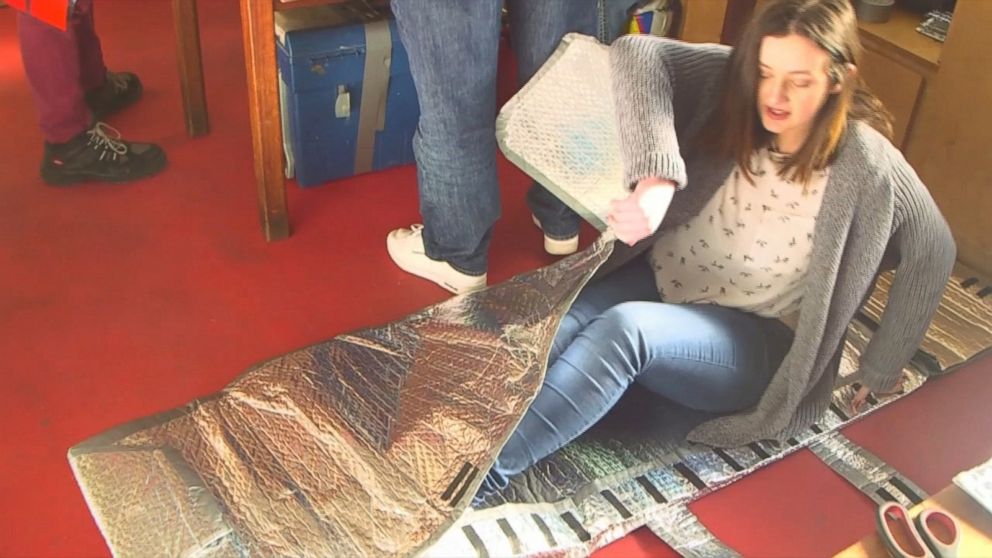Teen Invents Sleeping Bag to Keep the Homeless Warm – and Put Them to Work
Emily Duffy's high-tech Duffily Bags have even comforted refugees.
LONDON— -- “Sometimes you just look at something and wonder, ‘Could this be better?’”
That was teen Emily Duffy's question when she started thinking about the living conditions of the homeless.
After researching the issue, then at age 15, the Irish schoolgirl in Limerick decided to create a high-tech sleeping bag for the homeless.
A year after she first thought of the idea, the bag is now being made by homeless men in Dublin, in a workshop designed to help them get back into the workforce.

It all started Jan. 9, 2015, when Duffy entered the Irish “BT Young Scientist and Technology Exhibition.” There, she presented a waterproof, fireproof sleeping bag and was noticed by the Mendicity Institution, a homeless charity in Dublin.
Mendicity manager Charles Richards offered her a deal: They would set up a workshop where service users would learn how to make their own sleeping bags and get paid for it.
“I knew straight away that there was going to be a use for my product and it would become something more that I could even imagine,” Duffy told ABC News. “They tested them out, made a few modifications to fit what they wanted and that's how the Duffily bag came to be.”
The sleeping bags, now called Duffily Bags, are being distributed at the Merchants Quay Night Café in Dublin and several were sent for migrants and refugees in Calais, northern France.
The bag itself has been through a series of changes. The metallic bubble wrap was a perfect find, Duffy, now 16, said. “It was water resistant, non-flammable and it also retained heat because it’s used as an insulator,” she added.
The Mendicity, primarily a food center, expanded its activities with the aim of introducing homeless people to the value of work. The sleeping bag workshop runs twice a week and is meant for long-term homeless who have no entitlements in Ireland.
“It’s providing them with a sense of achievement, of pride, for a product that they actually take from start and they actually see it finished,” workshop manager Simona Sav told ABC News.
“Sometimes they take on the role of helping the newer people training them so that helps them become responsible and stay sober,” Sav said.
They are paid 20 euros (about $22.50) per session.
They have already had success stories, Sav said, with former participants now with part-time or full time employment, but also with current participants making improvements and gaining in confidence and well-being.
Mendicity is recruiting for a service user who could work as a workshop manager. They would also like to increase the number of participants, currently at four, and maybe even start looking at other products to make from scratch.
Duffy, still in school, works closely with The Mendicity staff but she has also moved on to other projects.
"I think she was born that way," her mother, Margaret Duffy, told ABC News. "That's been her attitude to life — need to do something, figure it out, do it and move on."




